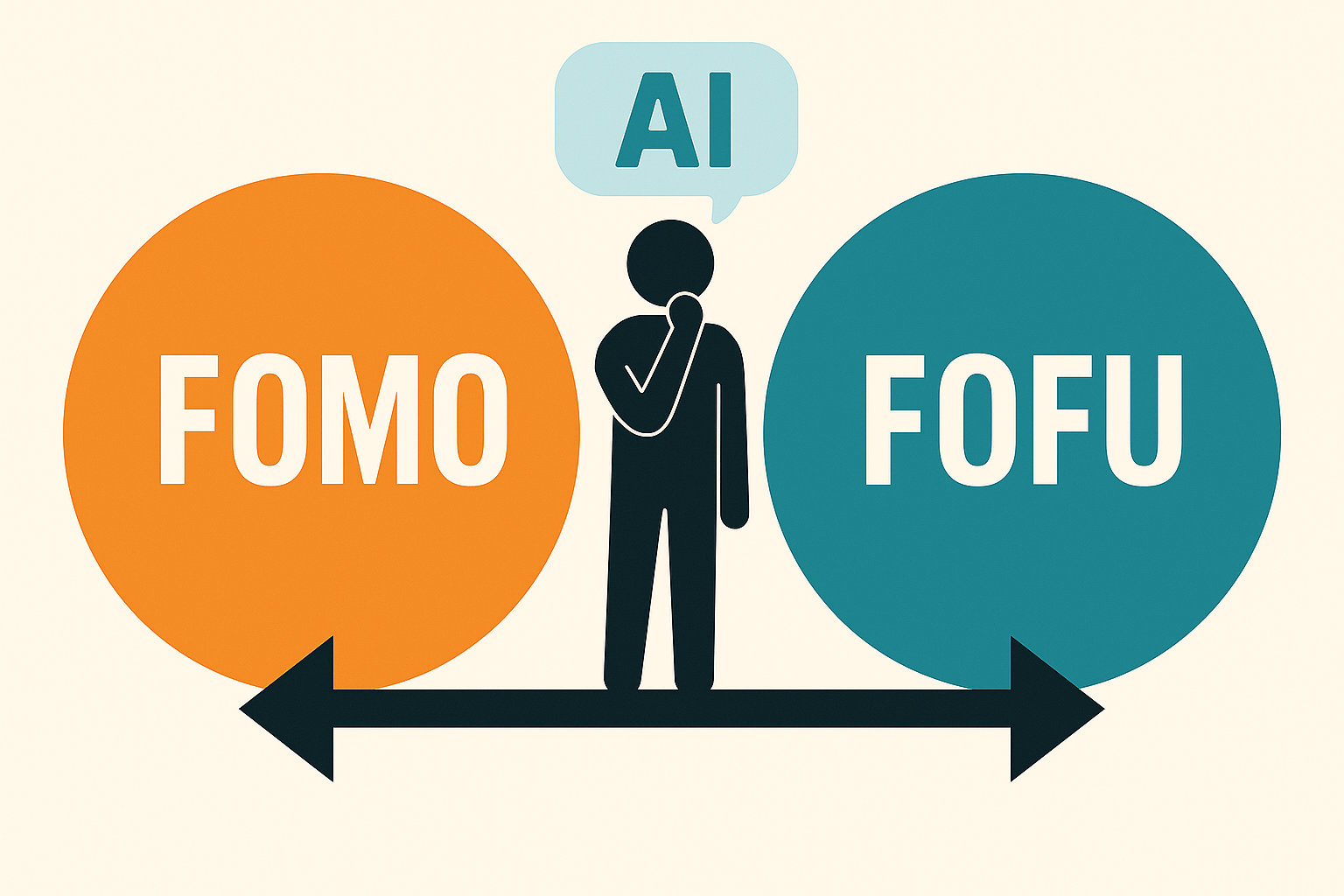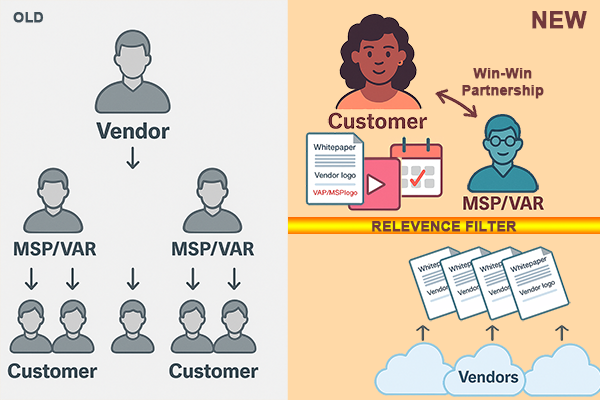I was hesitant writing another post on AI, but with everyone talking about it like it’s the greatest thing since sliced bread, I had to share some more thoughts I have on the subject.
So let's start with an assumption: The masses talking about AI as the biggest thing since electricity are right.
So given that assumption, today we look at why most small and midsize businesses are hesitant to jump into the AI pool.
Welcome to the tension that defines this moment: FOMO vs. FOFU.
The AI Adoption Pendulum
For SMBs, FOMO (fear of missing out) is everywhere.
You see competitors posting about AI-enhanced productivity. You see tools promising 10x output. You see sales reps saying
“I used ChatGPT to close this deal in half the time.”
You want in. You need in.
But then FOFU hits.
- What is the best AI model to use?
- What if the automation sends the wrong message to a prospect?
- What if my team resists, or worse, mocks me for chasing shiny objects?
The struggle is real.
Because in an SMB, mistakes feel bigger. There’s no “innovation budget.” You are the budget.
The Psychology of FOFU
FOFU thrives in uncertainty. And AI right now is nothing but uncertainty. Models, prompts, ethics, hallucinations, legal gray zones, etc.
The human brain hates undefined risk. So we default to wait-and-see mode.
The problem is that in a business (or any closed system for that matter), waiting isn’t neutral, it’s decay/entropy.
And notably, FOMO and FOFU reinforce each other.
The more hype there is (“you’re missing out if you’re not doing AI!”), the higher the perceived risk of doing it wrong.
It’s the same dynamic that made companies slow to adopt cloud, CRM, or marketing automation back in the day, only faster moving, louder, and with, seemingly, a lot more at stake.
The Real Risk Isn’t AI, It’s Inaction
Here’s the quiet truth: the most dangerous move for an SMB right now is not trying AI.
AI isn’t an all-or-nothing technology. You don’t necessarily need a grand strategy. You just need a pilot.
*Something small enough to test.
*Simple enough to measure.
*Safe enough to build confidence.
That’s how you beat FOFU. Think momentum (bold, italic, and underline!), not mastery.
Simple RevOps Experiments That Work
Here are a few low-risk, high-learning examples that help teams move from theory to traction:
1. AI-Assisted CRM Hygiene
Every RevOps leader knows the pain of incomplete CRM data.
Instead of spending hours chasing reps for updates, use AI to summarize call notes, extract deal info, and fill in missing fields automatically.
It’s not perfect, but “mostly accurate and done” beats “flawless and never started.”
2. Automated Follow-Up Drafts
Let’s say a lead downloads an eBook or attends a webinar.
Instead of a generic sequence, use an AI assistant to write the first draft of a personalized follow-up email, referencing company size, industry, and content topic.
Your reps edit, review, and send. Suddenly, they’re saving 30 minutes per lead, plus quality goes up, not down. And any personalization is always better than no personalization.
3. Predictive Forecast Nudges
Even if you don’t have a fancy data science team, simple AI tools can flag deals at risk or forecast gaps based on activity levels, deal velocity, or engagement history.
It’s like giving your pipeline a second pair of eyes that never sleeps, forgets, or takes vacation.
4. Proposal or SOW Drafting
Upload your last three proposals and let AI draft a new one in your preferred tone and format.
The first draft is rarely perfect, but it gets you 60% there, and that’s the part that used to burn hours.
Shifting from Fear to Learning
Adopting AI is less about tech readiness and more about mindset readiness.
It’s not a question of “Should we do this?” but “What’s the smallest, safest test we can run next week?”
And, don't be afraid to test something else small the next week.
That’s how small businesses can catch some big fish, one dart at a time (obscure darts reference ftwk).
The Bottom Line
FOMO gets you curious.
FOFU keeps you cautious.
The balance is found in experimentation.
At KRROP, we see it over and over: the SMBs winning with AI aren’t the ones chasing the latest model. They’re the ones running fast, low-stakes experiments that build organizational confidence.
You don’t need an AI strategy. You need an AI experiment.
Start small. Learn fast. Adjust.
That’s how you move from hype to habit, and turn fear into forward motion.



